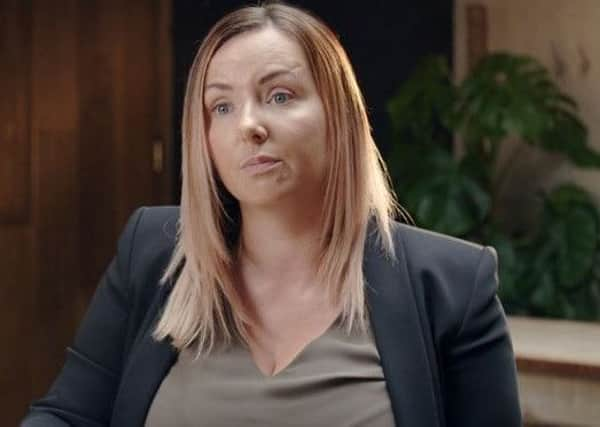Derbyshire forensic psychologist issues warning over dating apps after killings


Dr Ruth Tully has provided her expertise for a new TV documentary called Swipe Right For Murder, in the wake of examining some terrifying killings that have come about after people met through dating apps such as Tinder, Plenty of Fish, Bumble and Grindr.
Now the psychologist, who has appeared on Sky and the BBC, is warning Derbyshire people to be highly circumspect about who they choose to meet up with.
Advertisement
Hide AdAdvertisement
Hide AdShe has issued her hard-hitting appeal after a number of high-profile cases involving people who have been by killed by men they met online.
In June last year, Molly McLaren was stabbed to death by a man she met on Tinder after only knowing him for a few days and schoolgirl Kayleigh Haywood was groomed online before being tragically killed .
Both cases feature in the series Swipe Right for Murder.
Dr Tully said: “I have worked hard to try to communicate to the public about forensic psychology and complex issues relating to crime and risk, and after being asked to give expert commentary for news channels like Sky and the BBC, alongside giving input to documentaries and new dramas in recent years, I was delighted to land a spot on Swipe Right For Murder, but it did make the risks seem all too real.
“Statistics show that one in five people between the ages of 25-34 now meet their partner online. and the online dating industry has grown into an industry worth over £1.7bn.
Advertisement
Hide AdAdvertisement
Hide Ad“Online dating can be a great way to meet new people, but it opens users up to huge risks if they don’t try to protect themselves.”
After examining a variety of crimes, Dr Tully has issued a number of top tips, including:
- Don’t pick a username that can identify you. Make sure that you choose a username which doesn’t include details such as your surname, where you work, or where you live.
- Set up a new email address. Use a separate email for online dating so that you do not unwittingly reveal your surname. If you have a separate email address for online dating, it also makes it easier to delete should you no longer wish to talk to someone that you met online. This also works if you encounter abuse from a potential match.
Advertisement
Hide AdAdvertisement
Hide Ad- Report unusual or abusive behaviour.If you’re being pressured into revealing intimate details or being asked to do anything that you are not comfortable with, then report the person to the online dating service. This helps to not only protect yourself, but other users. A common way of sending inappropriate pictures to people is to entice them away from the dating site to messaging on WhatsApp and text, where it is easier to send inappropriate or harmful content. Be aware of this if the person is asking to message you directly.
- Always meet in a public place and never go back to someone’s house on date one - or allow them back to your house. Until you know this person, be very careful about telling them where you live. It might feel as though you know the person well as you could have been chatting on the dating site for some time, however, remember that people may find it easy to lie or mislead you online, and that the details and information they have disclosed might not be genuine.
- Always tell a friend or relative where you are, who you are meeting and where, and send them a screen shot of the person’s dating profile and other contact details if you have them. Such details could save your life, should the worst happen.
Dr Tully said: “Crimes related to online dating have risen by 382 per cent between 2011 to 2016, with the National Crime Agency reporting that reports of rape have risen six-fold in the same time period.
“Whilst the responsibility for sexual or violent offending lies with the perpetrator, being aware and taking precautions if meeting people online is the sensible thing to do.”